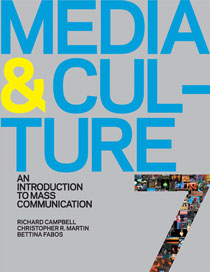Attendance is
not mandated, but it is tracked, and it figures into your overall
grade. An attendance sign-in sheet will be circulated in the
beginning of each class. Attendance over the entire term will be
evaluated, based
on unexcused absences.
- 0-1 absences=A,
- 2-3 absences=B,
- 4-5
absences=C,
- 6-7 absences=D,
- 8 or more=F.
It is not a good idea to have someone sign for
you if you are not in class.
It is always in your best interest to come to class.
Class participation and involvement is highly rewarded.
PLEASE NOTE: There
will be no extra credit assignments offered, so take each exam
seriously, read the book and outside readings, complete the
two projects, complete the 1-page review papers, attend class, and provide thoughtful comments in class. |

